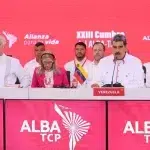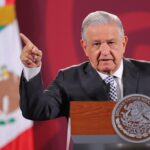By Santiago Mayor
Six countries of Latin America will hold presidential elections during this year. These are Argentina, Uruguay, Bolivia, Panama, Guatemala and El Salvador. Although in the last year very important elections were held, such as those of Mexico and Brazil (the two most populous and economically important countries) -where the sign also changed Government politician, with the triumph of Andrés Manuel López Obrador and Jair Bolsonaro, respectively-, and Colombia, where Ivan Duque prevailed, those of 2019 are still relevant in a regional scenario in permanent reconfiguration.
Progressive forces and the left will seek to remain in power in Bolivia, Uruguay and El Salvador, while conservative and neoliberal parties will do the same in Argentina, Panama and Guatemala. In some cases the result seems to be more or less accurate, but in others the dispute is open and any change could rearrange Latin American geopolitics.
What would happen if Evo Morales fails to continue leading his democratic and cultural revolution in Bolivia? What if in Argentina the Government of Mauricio Macri is defeated by a force led by the ex president Cristina Fernández de Kirchner? How will the phenomenon of Central American migration to the United States affect the new policies in El Salvador and Guatemala?
1.- El Salvador
The first electoral contest will take place on February 3 in El Salvador, where polls predict a possible surprise. Neither the ruling Farabundo Martí National Liberation Front (FMLN), in power since 2009, nor the rightist opposition of the Nationalist Republican Alliance (ARENA), lead the voting intentions.
The favorite is the former mayor of the capital, San Salvador, Nayib Bukele. This 37-year-old politician could become the country’s youngest president by the Grand Alliance for National Unity (GANA). Expelled from the FMLN, Bukele founded this new space and approached ARENA’s postulates, although he maintains his autonomy and a discourse against corruption.
In case no candidate triumphs in the first round, the ballotage will take place on March 10.
The election will be focus on the situation of violence and poverty that the country is going through. The action of the gangs known as ‘maras’ has plagued the Salvadoran territory for years. To this is added that, although its economy has grown, it has done it at a very slow pace without the capacity to solve social problems. That is why its inhabitants are part of the already famous migrant caravans to the USA.
2.- Panama
With an even scenario, Panamanians will go to the polls on May 5. From there will emerge a winner, regardless of the percentage, since the country is one of the five in Latin America where there is no second round of elections. Neither is there in Mexico, Paraguay, Venezuela and Honduras.
At the moment the main contenders are three: José Isabel Blandón, of the ruling Panameñista Party; Rómulo Roux, of the Democratic Change (CD); and Laurentino Cortizo, of the Democratic Revolutionary Party, founded by the historical military leader Omar Torrijos.
The particularities of the electoral campaign are yet to be seen because it will last 60 days, after the approval of a new electoral law.
At the same time, there is speculation about the place that Ricardo Martinelli will occupy. The former president (2009 – 2014), linked to various cases of corruption and imprisoned since mid-2018 for a cause of illegal wiretapping, seeks to stand as an independent candidate for mayor of the capital and is also a deputy candidate for the CD, but it is not ruled out that Roux offers to be his formula mate.
3.- Guatemala
The Guatemalan scenario is even more uncertain. On June 19 an election will be held in a country crossed by successive crises of corruption, which had its peak in the resignation of then President Otto Pérez Molina in 2015.
The current president Jimmy Morales, who aims for re-election, is involved in a dispute with the International Commission against Impunity (CICIG). This entity, formed by common agreement between the Government and the UN, seeks to investigate the various crimes of corruption in the country. However, Morales has been denouncing for months that the CICIG has “exceeded” its functions and became a “threat to peace”, so it has expelled several of its members from the country.
In this context, the electoral chances of the head of state are diffuse and, if necessary, the second round will be held on August 18.
In the opposite vereda will have old opponents with whom he competed in 2015 as the businesswoman and ex-wife of President Alvaro Colom, Sandra Torres; the three-time candidate Alejandro Giammattei, who founded a new party called Vamos; and Zury Ríos, daughter of the late de facto president and condemned for genocide, Efraín Ríos Montt. It is also estimated that, outside the traditional political parties, former Attorney General Thelma Aldana may emerge with force, although she has not yet announce whether she will be a candidate or not.
Although it is the largest economy in Central America, it is located within the countries with the highest levels of inequality in Latin America. It has high rates of poverty -particularly in rural areas and among indigenous populations- and with some of the highest rates of chronic malnutrition and maternal and infant mortality in the region, according to the World Bank.
4.- Uruguay
On October 27, the small country of 3 million inhabitants will choose whether to go for a new term of the progressive Broad Front (ruling since 2004) or lean towards the conservative National Party. If no candidate gets half plus one of the votes, a ballot will be held on November 24.
Being so many months away, none of the contending organizations has chosen their candidates. However, it is already known that the ruling party will not have the current president, Tabaré Vázquez, who announced his retirement from politics, like his predecessor, José Mujica.
In principle everything seems to indicate that, if there is no surprise, the Frente Amplio will remain in power, retaining one of the bastions of Latin American progressivism in the 21st century.
5.- Argentina
On the other side of the Río de la Plata, Argentines will vote on the same day as their eastern neighbors, but before they do so in the so-called Simultaneous and Mandatory Open Primary (PASO), which will take place on August 11. This is a key choice since the continuity of the neoliberal experiment of Mauricio Macri, who arrived at the Government in 2015 and who had 2018 with several economic problems, is settled.
Among them, inflation stands at around 45%, an increase in poverty and a devaluation of the peso against the dollar of more than 100%, which led to an indebtedness with the International Monetary Fund (IMF) for 57,000 million dollars.
Although no candidacy has yet been formalized, it is estimated that the current president will seek re-election as a candidate for the Cambiemos alliance. On the horizon appears as its main contender, so far, the senator and former president (2007 – 2015), Cristina Fernández de Kirchner. However, the leader is currently facing a series of court cases against her with arrest warrants included. However, by having parliamentary privileges, she can not be arrested.
The possibilities of the latter to unite a large part of the opposition could lead to an election with uncertain results. In turn, they would open the door to the possible return of a progressive government in one of the most important countries in South America, which would be a counterbalance to the recent triumph of Jair Bolsonaro in Brazil.
6.- Bolivia
The only still undated elections are the Bolivian ones, however, it is known that they will be held during the month of October. Although Evo Morales, in the Presidency since 2006, has maintained all these years in power thanks to his economic and social successes, it may be his most difficult election since he took office.
First, by the way he agreed to a new candidacy. After losing a referendum in early 2016, where he planned to go for a fourth consecutive term (the third since the Constitution was reformed in 2009), the Constitutional Court finally empowered Morales to run for office until 2025. This resolution generated some protests for going against what was voted in the polls long ago.
In addition, although there is still too much time left, the polls place him head to head in an eventual contest against former president Carlos Mesa. Anyway, it’s early to speculate, since the opposition in Bolivia has been very divided for years and has not managed to unify in a bid that can be really competitive.
Translated by JRE
- orinocotribunehttps://orinocotribune.com/author/orinocotribune/
- orinocotribunehttps://orinocotribune.com/author/orinocotribune/
- orinocotribunehttps://orinocotribune.com/author/orinocotribune/
- orinocotribunehttps://orinocotribune.com/author/orinocotribune/
Share this:
- Click to share on Twitter (Opens in new window)
- Click to share on Facebook (Opens in new window)
- Click to share on LinkedIn (Opens in new window)
- Click to share on WhatsApp (Opens in new window)
- Click to share on Reddit (Opens in new window)
- Click to share on Telegram (Opens in new window)
- Click to email a link to a friend (Opens in new window)





